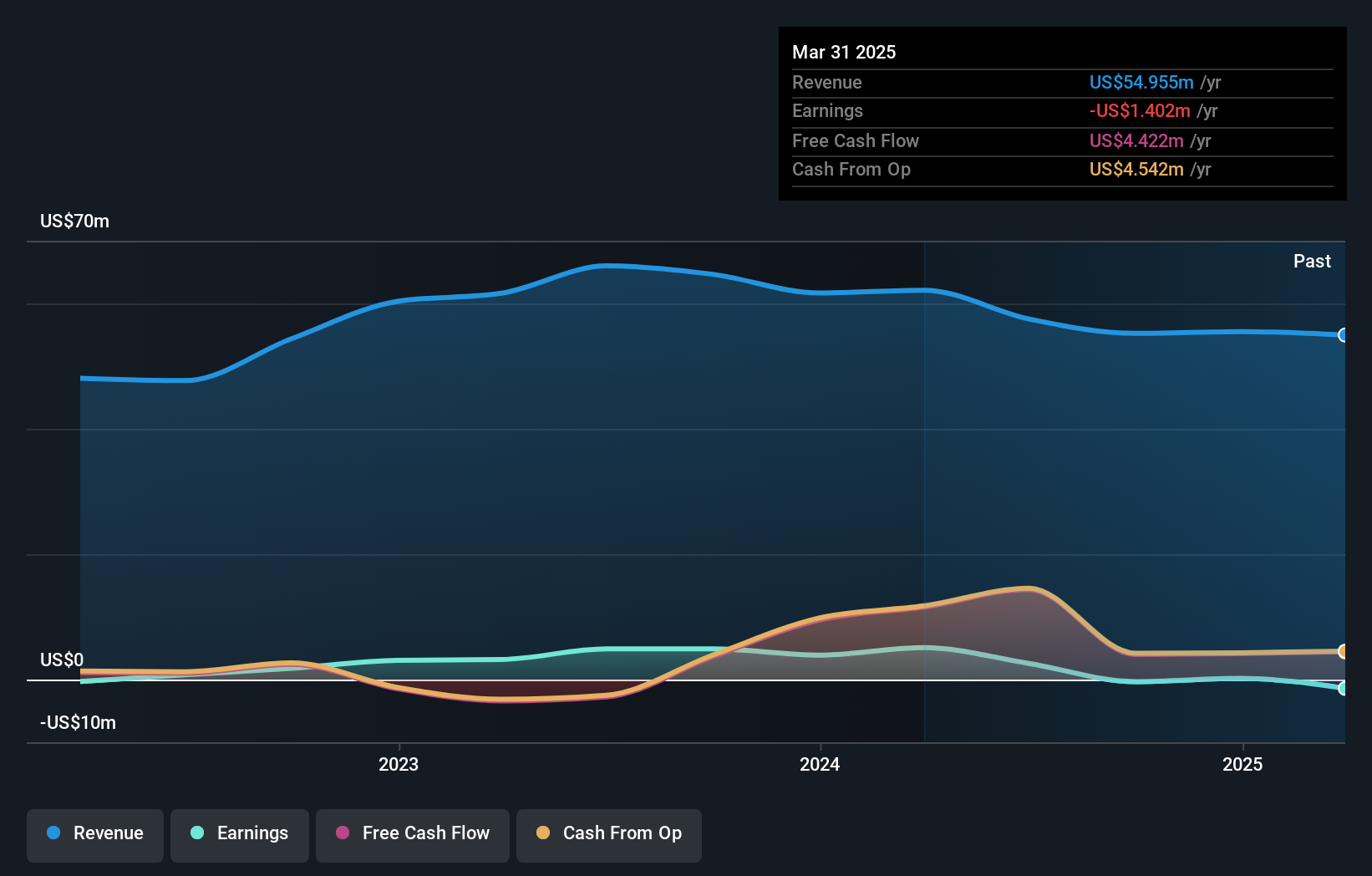- United States
- /
- IT
- /
- NasdaqGM:CSPI
CSP Inc.'s (NASDAQ:CSPI) market cap dropped US$13m last week; Individual investors bore the brunt

Key Insights
- CSP's significant individual investors ownership suggests that the key decisions are influenced by shareholders from the larger public
- 50% of the business is held by the top 13 shareholders
- Insiders have bought recently
If you want to know who really controls CSP Inc. (NASDAQ:CSPI), then you'll have to look at the makeup of its share registry. With 42% stake, individual investors possess the maximum shares in the company. That is, the group stands to benefit the most if the stock rises (or lose the most if there is a downturn).
While insiders who own 31% came under pressure after market cap dropped to US$107m last week,individual investors took the most losses.
Let's delve deeper into each type of owner of CSP, beginning with the chart below.
See our latest analysis for CSP

What Does The Institutional Ownership Tell Us About CSP?
Institutional investors commonly compare their own returns to the returns of a commonly followed index. So they generally do consider buying larger companies that are included in the relevant benchmark index.
CSP already has institutions on the share registry. Indeed, they own a respectable stake in the company. This suggests some credibility amongst professional investors. But we can't rely on that fact alone since institutions make bad investments sometimes, just like everyone does. If multiple institutions change their view on a stock at the same time, you could see the share price drop fast. It's therefore worth looking at CSP's earnings history below. Of course, the future is what really matters.

Hedge funds don't have many shares in CSP. Joseph Nerges is currently the largest shareholder, with 14% of shares outstanding. For context, the second largest shareholder holds about 8.1% of the shares outstanding, followed by an ownership of 7.1% by the third-largest shareholder. Victor Dellovo, who is the second-largest shareholder, also happens to hold the title of Chief Executive Officer.
Looking at the shareholder registry, we can see that 50% of the ownership is controlled by the top 13 shareholders, meaning that no single shareholder has a majority interest in the ownership.
While studying institutional ownership for a company can add value to your research, it is also a good practice to research analyst recommendations to get a deeper understand of a stock's expected performance. Our information suggests that there isn't any analyst coverage of the stock, so it is probably little known.
Insider Ownership Of CSP
While the precise definition of an insider can be subjective, almost everyone considers board members to be insiders. Company management run the business, but the CEO will answer to the board, even if he or she is a member of it.
Insider ownership is positive when it signals leadership are thinking like the true owners of the company. However, high insider ownership can also give immense power to a small group within the company. This can be negative in some circumstances.
Our most recent data indicates that insiders own a reasonable proportion of CSP Inc.. Insiders have a US$33m stake in this US$107m business. We would say this shows alignment with shareholders, but it is worth noting that the company is still quite small; some insiders may have founded the business. You can click here to see if those insiders have been buying or selling.
General Public Ownership
The general public-- including retail investors -- own 42% stake in the company, and hence can't easily be ignored. While this group can't necessarily call the shots, it can certainly have a real influence on how the company is run.
Next Steps:
I find it very interesting to look at who exactly owns a company. But to truly gain insight, we need to consider other information, too.
I like to dive deeper into how a company has performed in the past. You can find historic revenue and earnings in this detailed graph.
Of course, you might find a fantastic investment by looking elsewhere. So take a peek at this free list of interesting companies.
NB: Figures in this article are calculated using data from the last twelve months, which refer to the 12-month period ending on the last date of the month the financial statement is dated. This may not be consistent with full year annual report figures.
New: AI Stock Screener & Alerts
Our new AI Stock Screener scans the market every day to uncover opportunities.
• Dividend Powerhouses (3%+ Yield)
• Undervalued Small Caps with Insider Buying
• High growth Tech and AI Companies
Or build your own from over 50 metrics.
Have feedback on this article? Concerned about the content? Get in touch with us directly. Alternatively, email editorial-team (at) simplywallst.com.
This article by Simply Wall St is general in nature. We provide commentary based on historical data and analyst forecasts only using an unbiased methodology and our articles are not intended to be financial advice. It does not constitute a recommendation to buy or sell any stock, and does not take account of your objectives, or your financial situation. We aim to bring you long-term focused analysis driven by fundamental data. Note that our analysis may not factor in the latest price-sensitive company announcements or qualitative material. Simply Wall St has no position in any stocks mentioned.
About NasdaqGM:CSPI
CSP
Develops and markets IT integration solutions, security products, managed IT services, cloud services, network adapters, and cluster computer systems for commercial and defense customers worldwide.
Excellent balance sheet and slightly overvalued.
Similar Companies
Market Insights
Community Narratives




